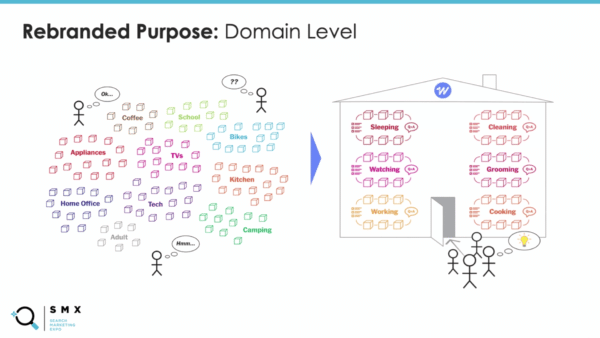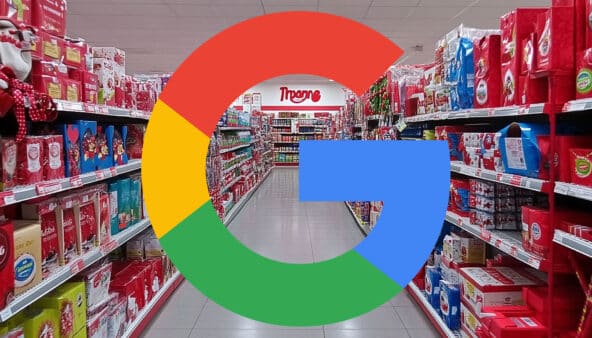Google SEO
Search Engine Land is your premier source for Google SEO news, strategies, and in-depth content.
You’ll find a variety of up-to-date and authoritative resources, including the latest news, tactic-rich tutorials, and the latest data to help you optimize your website, work smarter, and make data-driven decisions that boost your organic search performance.
Why staying updated on Google SEO matters
Google’s search algorithms evolve constantly, and staying ahead of these updates is key to maintaining and improving your website’s rankings. Whether it’s changes to core web vitals, guides to E-E-A-T, or advancements in AI-driven search like generative AI features in Google Search, understanding these shifts can give you a competitive edge.
Search Engine Land brings you actionable strategies to navigate algorithm updates, optimize for featured snippets, and improve your site’s technical SEO performance. Our resources are tailored to anyone that wants to maximize organic visibility.
What you read here is written by our experienced in-house team, and subject matter experts from leading agencies and top-ranking brands across various industries.
Looking to stay informed? Don’t miss out! Get the Search Engine Land newsletter delivered daily to your inbox. Subscribe for free and stay ahead in the ever-evolving world of organic search!
Google December 2024 spam update unleashed
This update was released a day after Google finished rolling out the December core update.
Google December 2024 core update rollout is now complete
This update took 6 days to roll out and was a typical Google core update.
Google’s new help document on faceted navigation
Faceted navigation can potentially lead to overcrawling and slower discovery crawls.
Google December 2024 core update rolling out now
Google has released its fourth core update for the 2024 year today.
Google Search Console rolling out new date controls for performance reports
This includes a new hourly view of the data.
Data providers: Google November 2024 core update was less volatile
This last Google core update was less impactful than the August core update and some other core updates.
Google Search Console Insights no longer to show data from Google Analytics
Google says this change is to make it easier to use these reports.
Google Search fixes delayed indexing issues
Google has confirmed it is investigating indexing issues within Google Search.
Google clarifies how Google’s crawlers handle cache control headers
Google is also asking site owners to allow Google to cache your web pages.
Google adds FAQs on site reputation abuse policy
Google added several frequently asked questions around the site reputation abuse policy.
Google November 2024 core update rollout is now complete
This update took 24 days to roll out and was a typical Google core update.
Google Search makes it easier to search without personalization
Google Search now labels if the results are personalized and gives you a quick way to turn off personalization.
Google Search Console recommendations now fully live
Note, you still may not see it if Google does not have recommendations for you.
Google site reputation abuse policy now includes first-party involvement or oversight of content
This policy is still enforced with manual actions but Google confirmed there are algorithms that detect similar issues.
Google Lens for in-store and local shopping
Now just point and shoot a photo and get prices, reviews, product details and more while looking at products in a retail store.
Google Search Console removing the Page Experience report
Google said, "We decided to remove this page to reduce unnecessary clutter within Search Console and simplify navigating to this information."
Google November 2024 core update rolling out now
Google today launched its next big search ranking update. The November 2024 core update will take about two weeks to roll out.
Google updates crawl budget docs for large sites with differing mobile and desktop pages and links
Google said it is best practice to have all links present on both mobile and desktop versions.
Google’s next algorithm update is coming soon, but don’t expect to recover lost traffic
Google held a web creator event yesterday, where engineers and executives spoke directly to creators who had ranking declines.
Google Search demoting content that is starkly different from the main content of the site
A Google spokesperson told Glenn Gabe, "Our systems aim to understand if a section of a site is independent or starkly different from the main content of the site. This helps us surface the most useful information from a range of sites."
Google Search Console performance report bug causes panic
Many of you woke up to seeing zero close to clicks and impressions this morning, this is an issue on Google's end Google confirmed.
Google Search to drop Sitelinks Search Box
This does not impact sitelinks but will impact the search box sitelinks feature.
Google Search expands Store ratings to more countries
Now these are available on Google Search in India, Australia, Canada, and the UK.
Google Search Console Performance report filters now stick
There is a "reset filters" option to remove the filters you previously set.
Google updates its spam policies document
Google added more details on site reputation abuse, while updated and clarifying other sections of the search spam policies.
Google adds support for sale pricing and priceType property
Google said this makes it easier for merchants to specify sale pricing through structured data and bring parity with price features in Merchant Center.
Google Search completely kills the cache feature
9 months after Google dropped the cache link and 2 weeks after Google added the Wayback Machine links, the cache operator has fully stopped working.
Data providers: Google August 2024 core update was very volatile
Google said the March 2024 core update was their biggest core update but the August 2024 core update did shake things up, in a big way.
Google updates crawlers and user-triggered fetchers documentation
With that, Google expanded how Google products are affected by each crawler and gave robots.txt examples for each crawler.
Google Search adds Internet Archive’s Wayback Machine links to about this page
This comes after Google dropped the cache link from the search results.
Google Search testing new display for forum content
This new user interface shows top comments and related discussions around that forum search result snippet.
Google August 2024 core update rollout is now complete
The update took 19 days to rollout and was a pretty impactful update.
Google Search now supports AVIF file formats
This means AVIF images will show in Google Search, Images, News, Discover and more.
Google Search may now use OG title for title links
Google added a 9th source that Google Search may use for title links.
Google Search ranking bug is now resolved
The four-plus day ranking bug, that kicked off around the same time of the August core update is now fixed.
Google August 2024 core update: What we’re seeing so far
Some sites hit by the September 2023 helpful content update are seeing some small signs of life. Will it last?
Google Search ranking bug unrelated to the core update
This bug is impacting a large number of the search results but Google identified the issue.
Google AI Overviews now show for signed-out users in the US
You no longer need to be logged in to see AI Overviews in the US, Google confirmed this is rolled out to all US searchers.
Google August 2024 core update rolling out now
One of the aims of the Google August 2024 core update is to surface useful content from small and independent sites.
Google gives new look for trending now section of Google Trends
The new design fits more trending keywords and gives you a nicer and more actionable interface to do your research with.








































